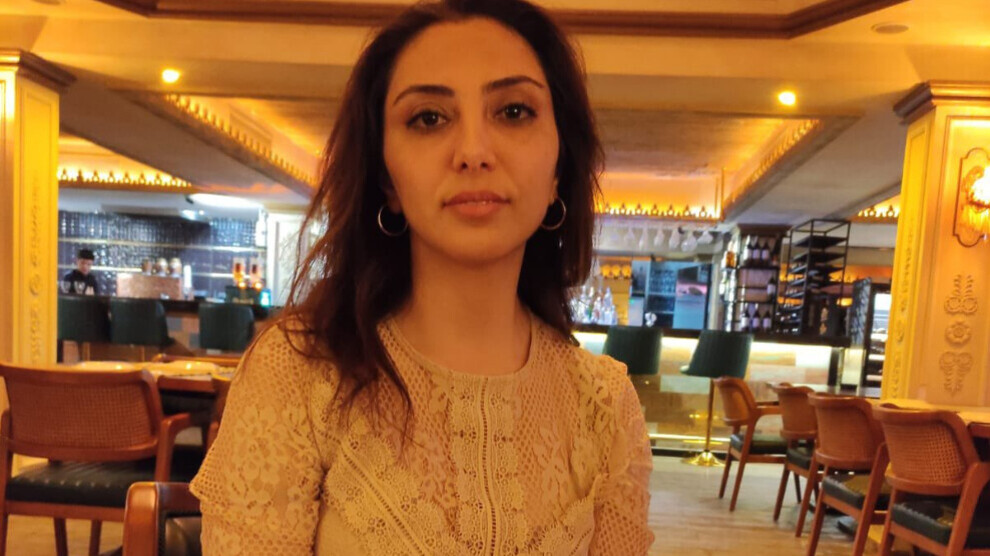Musician Aysel Borak: We can't make art detached from our society
Aysel Borak, one of the young names in Kurdish music, said: “There is war and we are in the Kurdish society. It is impossible for us to make art detached from our society.”
Aysel Borak, one of the young names in Kurdish music, said: “There is war and we are in the Kurdish society. It is impossible for us to make art detached from our society.”

Aysel Borak spoke to ANF about her musical passion and career. She began her musical life at the Mezopotamya Cultural Centre (MKM) at a young age despite all the obstacles.
When did you start music?
Mine was a childhood passion. I would take a brush and sing songss. There were cassettes of Kurdish artists in our house. Mihemed Şêxo, Şehrîbana Kurdî, Şivan Perwer, Xelîl Xemgîn and many others. We would listen to them with fear. In the evening, those tapes were hidden in my grandmother's stash. I think I liked music because the forbidden was beautiful. My love comes from that time. We had a little tape recorder so I used it to record my voice. My student brothers and sisters used to say that I was talented.
I started to practice music at the age of 10 with the MKM's children's choir. I was a kid back then and to my family it seems something not too important. When I become an adult and wanted to continue, my first obstacle was my family and relatives. We were a well-known family in Van and Hakkari regions. My guitar was a great success among the relatives, I was the granddaughter of the Aga [the family head]. I was 15 years old and my uncle, who was the elder of the family reacted strongly [to me playing music]. My guitar was broken. In the following years, I started to buy a better quality guitar and take lessons, but the guitar in me was broken once. Of course I did not give up; I continued my studies on the one hand and my artistic life on the other. Seeing that I was not giving up, it was my family who gave up. Even then, I understood that the family was the strongest structure of the system, and therefore transforming them was my biggest task. My biggest supporters on this path have been my father and grandmother. We closed our ears to every word spoken. My work is also an answer to all of these.
There is a close connection between Dengbêjlik and contemporary Kurdish music. Do you think Kurdish music is returning to its essence?
Dengbêjlik is another world. I think it has no end. It is the only oral literary trend of the Kurds. History, culture, art and legends are a form of verbal expression. Kurdish music is not structured independently from the dengbêj. Even electro and other music styles definitely contain dengbêji. In short, there is a strong interaction and bond.
How does the current political context affect your art?
All politics directly affect art, either positively or negatively. And all the more in the lands we live in. There is war and we are inside the Kurdish society. It is impossible for us to make art detached from our society.
What is the state's approach to Kurdish music in this period?
First of all, it is useful to say that the state is against the Kurd who is not assimilated. It is not going to tolerate his art. We had festivals organized by our municipalities and we were holding public meetings. We could get together with the public. We could work in art institutions belonging to the municipality. These were all confiscated and closed. We have many colleagues who play music in Kurdish and are put in prison under absurd excuses. Kurdish songs have been assimilated and translated into Turkish, and this still continues.
Do you have any new work?
I continue my work within the bounds of possibility. Soon I will be here with an (anonymous) Sorani work from the Hewreman region. I like to include every dialect of Kurdish in my repertoire. Since I am from Behdinan, I privileged my own region.